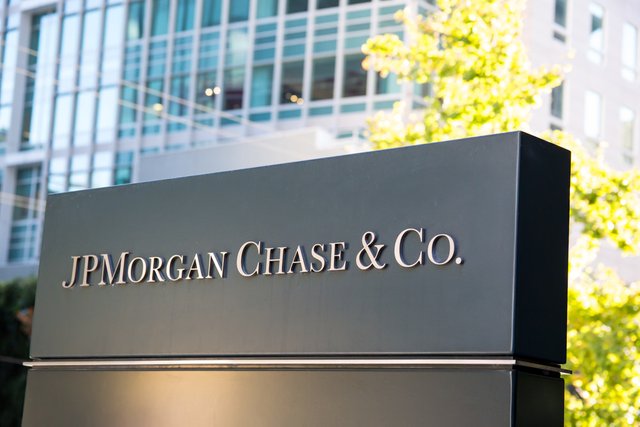Why investment firms should embrace blockchain
Blockchain will find a natural home in the technology-led investment market. Technology has already made it easier for investors to access the stock market quickly and cost-efficiently via online fund supermarkets. It has also enabled fund managers to engage more directly with investors – investment portfolios and wraps can be seen 24/7 and the valuations are significantly more up to date.
The internet was a game changer, whether for DIY investors wanting to trade themselves or for those looking to buy into collective funds. Being able to see portfolio construction – sector breakdowns, geographical spread, manager reports and benchmark comparisons at the click of a mouse, has been a huge benefit to the investor who wants to see where they are invested and why.

The asset management industry has grown significantly since the 1990s.
Market growth
The next development for investment firms in terms of technology is blockchain. One of the reasons that adoption of blockchain is so important relates to how the asset management industry has grown since the 1990s in both size and complexity.
The types of fund structures and underlying asset classes has multiplied in response to investors’ demands for niche as well as vanilla products.
As a report by PwC, Blockchain in Asset Management, points out, investment management firms have increasingly used service companies to act as intermediaries between them and the clearing and settlement infrastructure. The ability of blockchain distributed ledgers to replace intermediary centralised systems of record has attracted real interest. The intermediary layer has brought into focus the issue of transparency and risk versus responsibility.
In terms of transparency, blockchain provides the opportunity to take out this extra layer and create direct linkage between fund managers and distribution platforms.
PwC claims that by removing intermediaries blockchain could reduce costs (fewer reconciliation errors); speed up settlement (via faster validation), increase resilience (no single point of failure) and improve transparency (by making it easier to monitor all business).
Compliance benefits
In its recent report Blockchain innovation in wealth and asset management, EY, points to a number of potential benefits for the wealth and asset management sector in embracing blockchain.
For instance, in addition to speeding the clearing and settlement of trades blockchain can be used to remove friction from the client onboarding process, streamline management of model portfolios and ease compliance burdens associated with anti-money laundering (AML) and ‘know your customer’ requirements.
As the report concludes: ‘The result is elimination of redundant functions, reduced operational expenses and increased opportunities to enhance the client experience.’
A distributed ledger supports the validation and execution of a transaction in near real time. The client experience is improved, the operational process is streamlined, and costs are reduced.

In a blockchain world, transparency and risk is known and managed ahead of time
Elements of risk
Do blockchain and smart contracts tighten the process and remove some of the risk in asset management?
In short, yes. In a blockchain world, transparency and risk is known and managed ahead of time. All trades on any asset are visible to all and decision making is immediate.
The ability to operate ‘smart contracts’ which automatically trigger actions based on satisfying defined criteria, can dramatically streamline and simplify processes and in doing so, remove time and cost from transacting.
But it is not just cost savings and transparency that blockchain offers, it also enables the tokenisation of assets which allows for digital trading. As Oleg Seydak, CEO of Blackmoon Financial puts it: “The tokenization of assets allows asset managers to pursue the full expression of investment opportunities including traditional financial markets and emerging cryptocurrency markets.” Essentially blockchain has expanded the investment universe.

In 2016, JPMorgan Chase released a guide advocating blockchain technology adoption by asset managers.
Industry response
It is all very well talking up what blockchain offers but how has the asset management industry responded to blockchain so far?
It is fair to say the response has been mixed. Back in 2016, JPMorgan Chase released a guide advocating blockchain technology adoption amongst asset managers. The guide Unlocking Economic Advantage with Blockchain, argues that asset managers need to get off the side-lines and take the initiative to understand and embrace blockchain. ‘The blockchain journey is likely to be long and the outcome is uncertain, but a consensus is forming that it is the real deal,’ the guide says.
The investment management world has undeniably invested money in blockchain technology, but it is a costly business and not always viewed as the number one priority.
A survey produced by Create Research and reported in the FT in 2017, revealed that asset managers have also been slow to embrace blockchain. Of the 458 asset and wealth managers polled, only 6% used blockchain. The asset management industry may be focusing more on other areas – for instance dealing with tougher regulation.
Some firms have taken the initiative, such as the likes of Northern Trust in Guernsey, which, in collaboration with IBM, recently applied blockchain technology to private equity administration.
Such actions signal a step forward but there remain challenges – particularly with alternative asset classes, which are less immediately convertible to new technology.
Blockchain benefits not yet clear
The incentive to embrace blockchain fully, to some at least, may only come when early adopters can demonstrate the benefits. However, by then, those who have held back on blockchain may have lost competitive advantage.
According to the findings of the poll, investment companies that failed to modernise their technology systems risked losing business to more digitally clued-up competitors from other industries. Investment managers and advisers may need to react quickly in order to stay in the game, especially when internet giants such as Google are starting to express an interest in money management.
Follow OpenLedger!